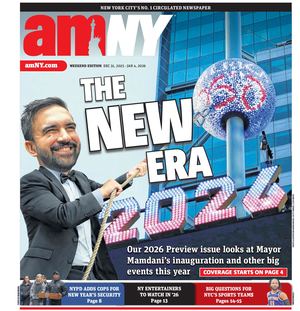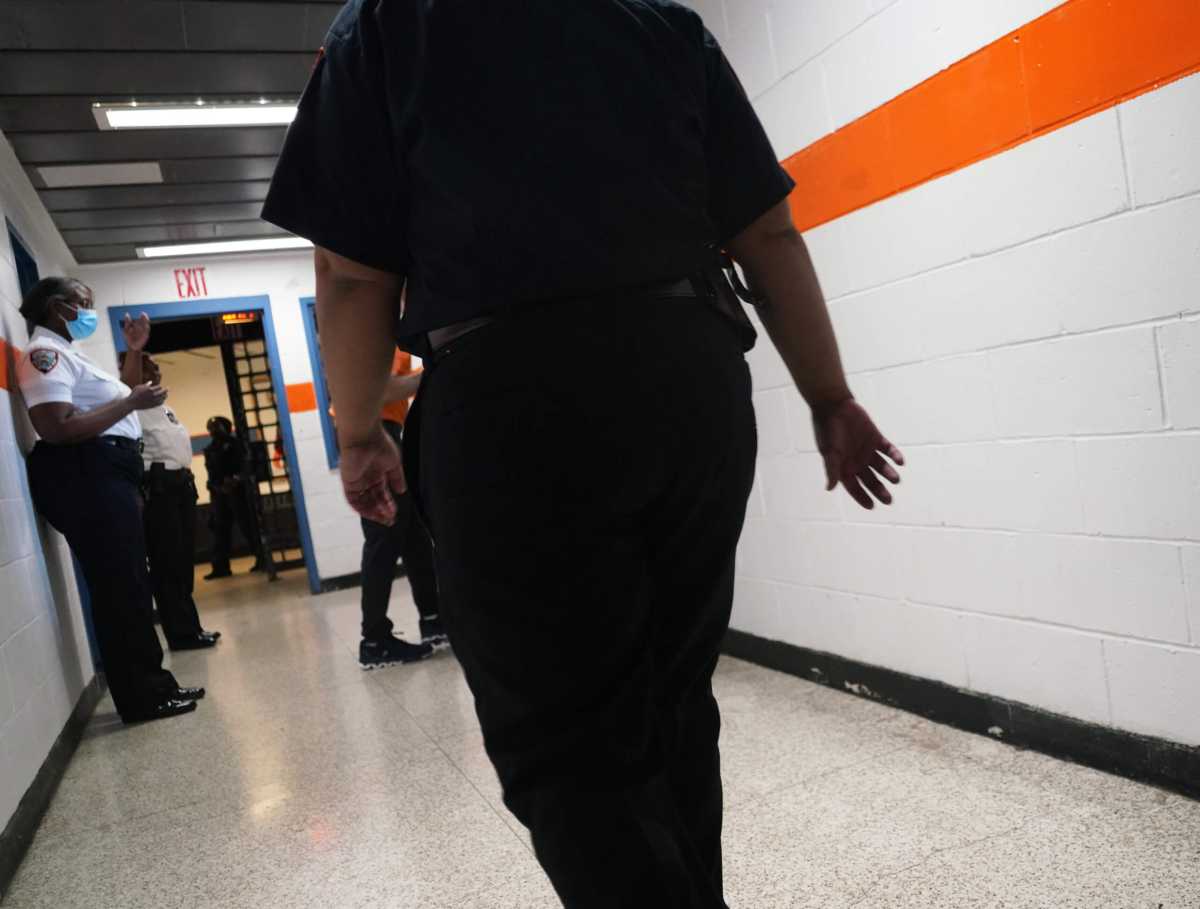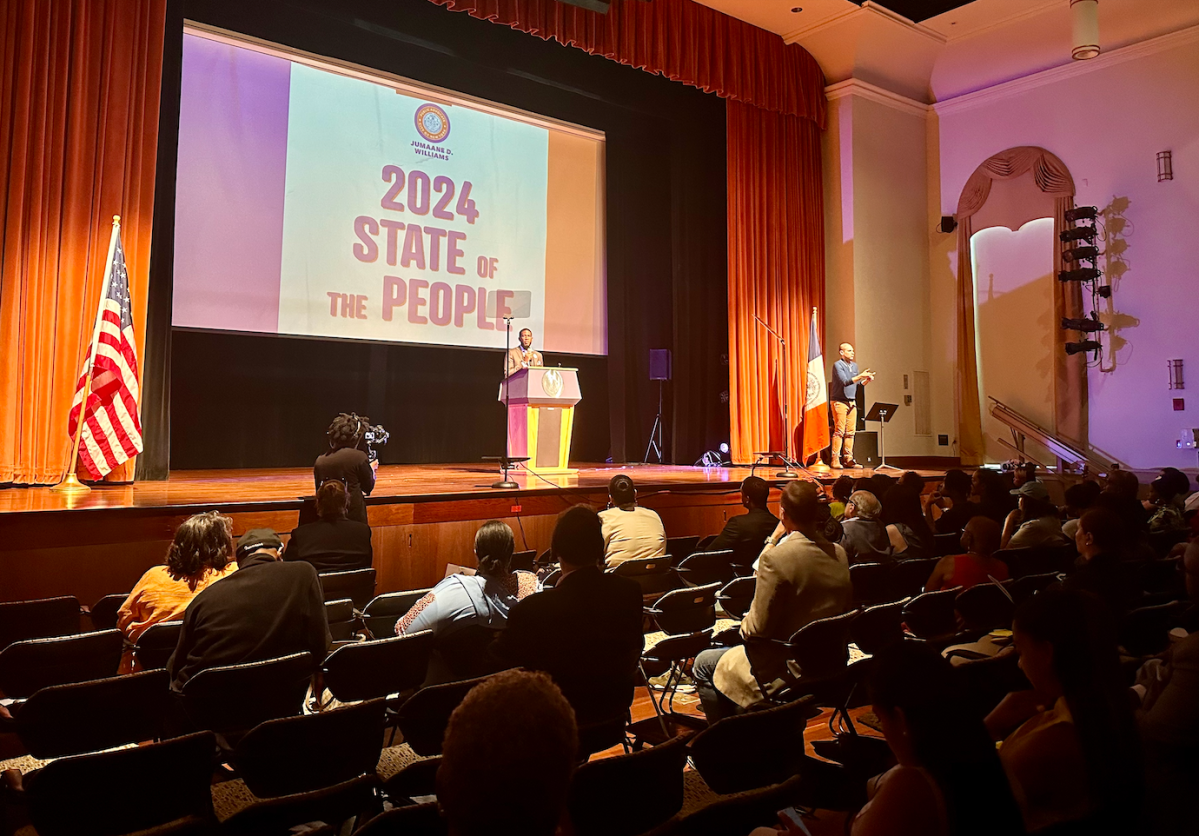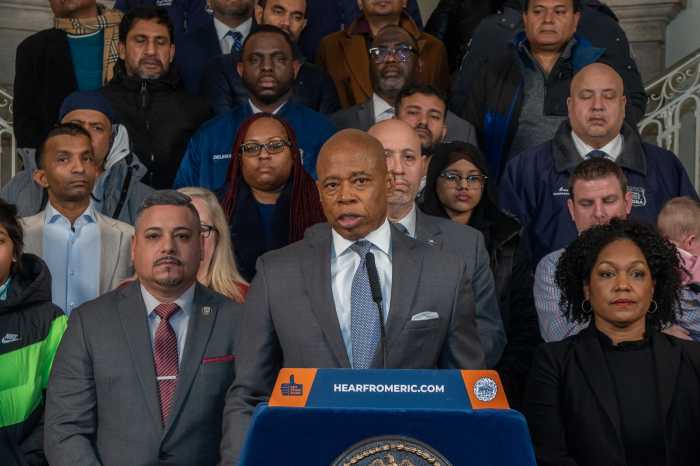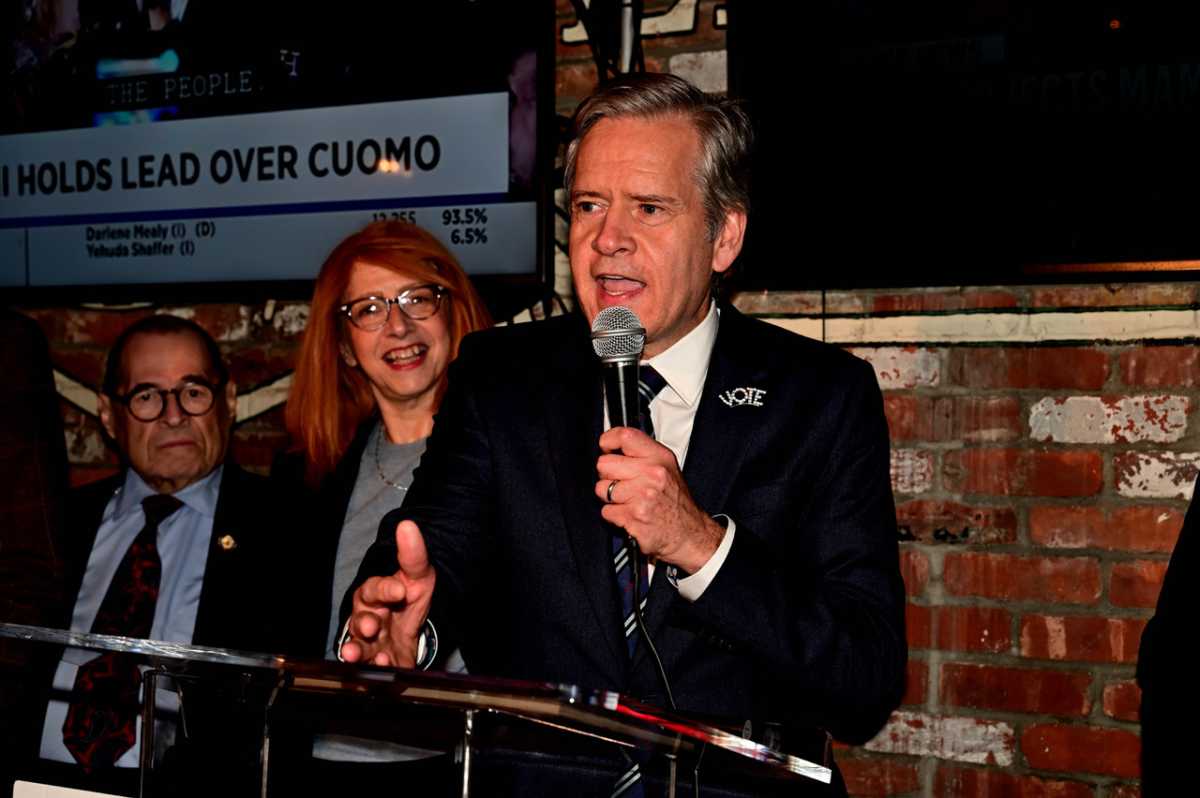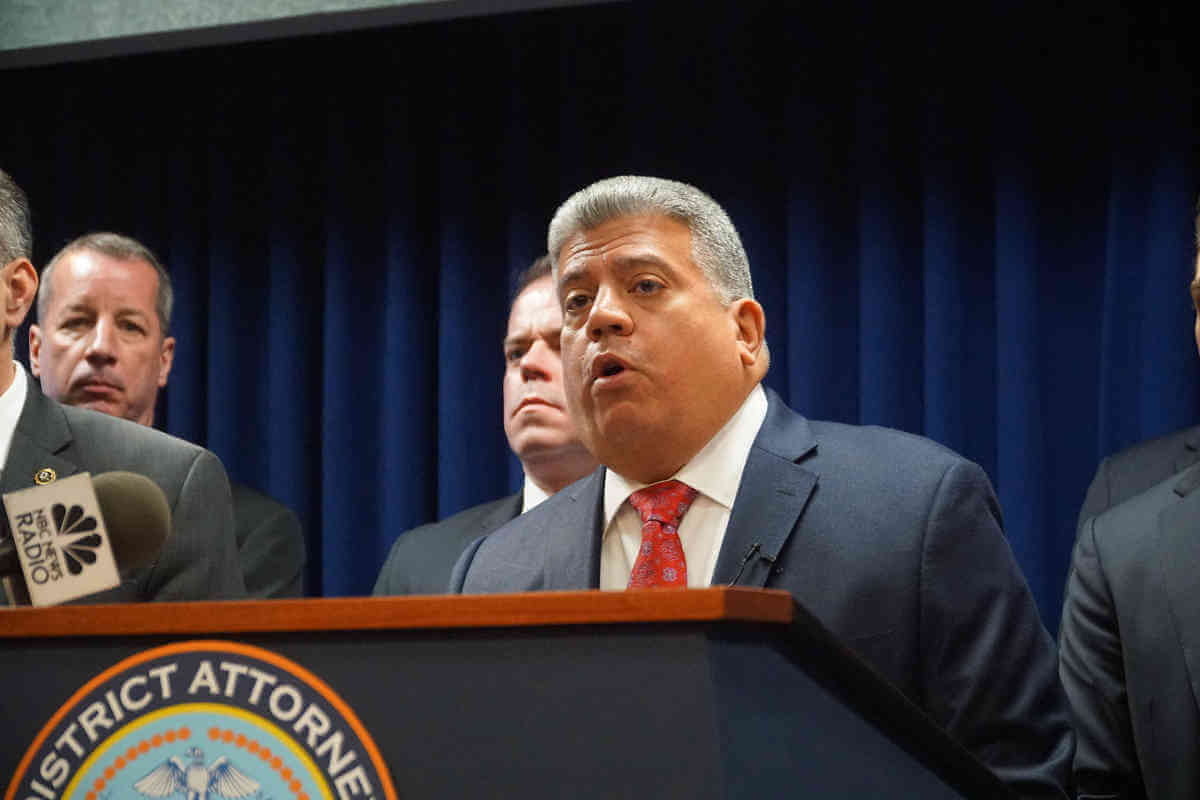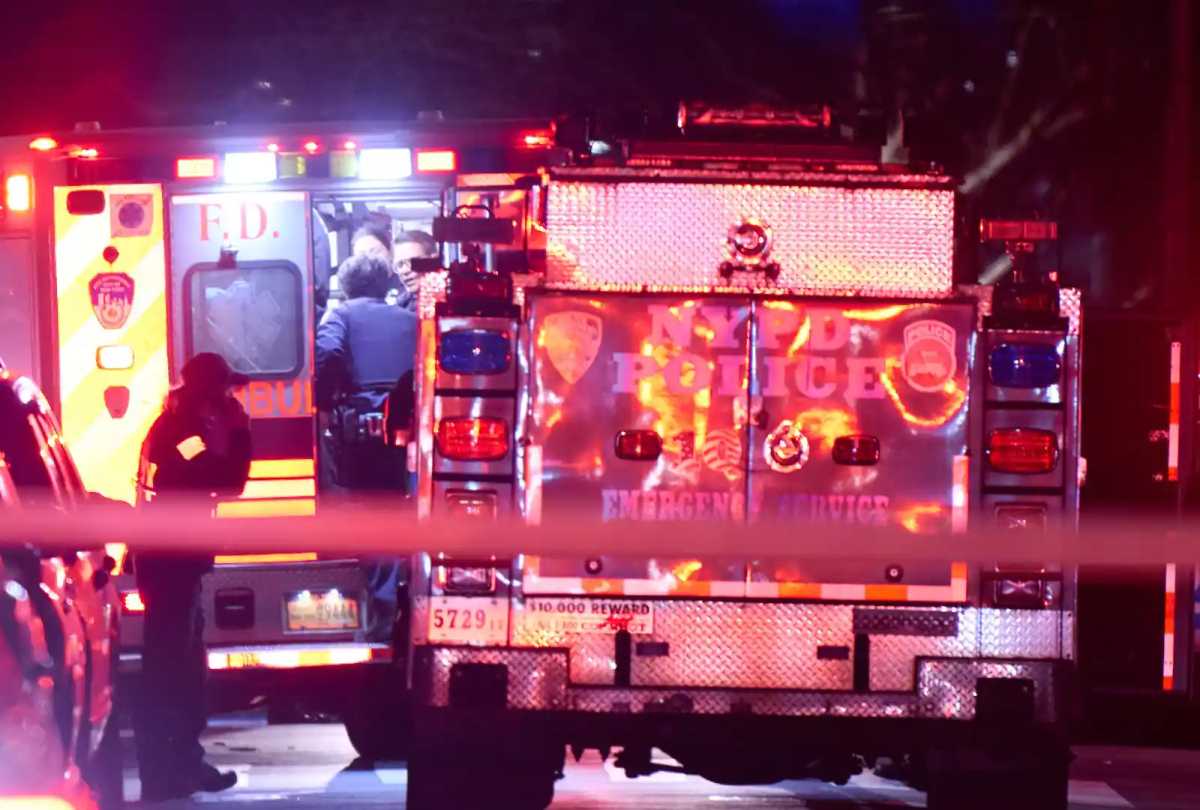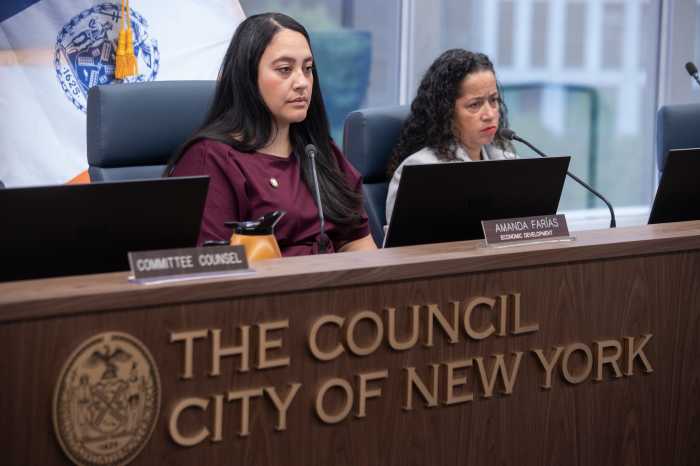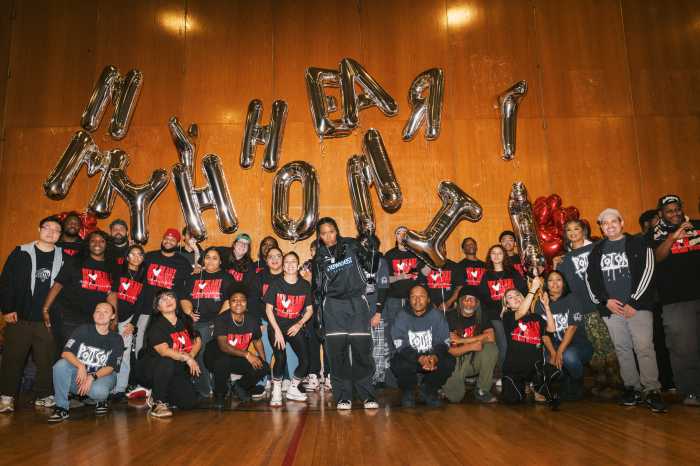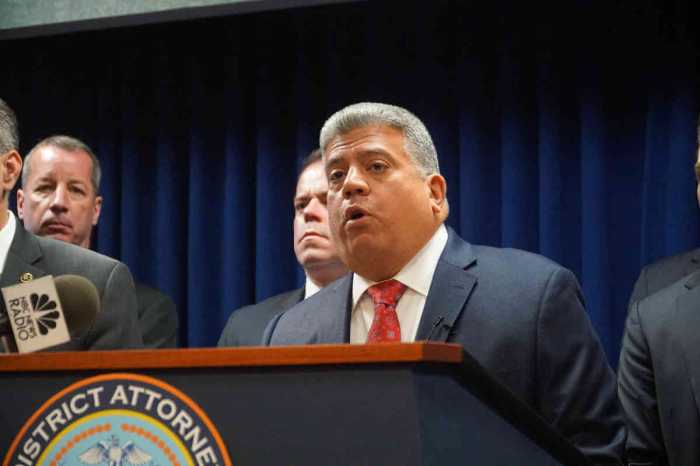Mayor Eric Adams issued a surprise order Saturday declaring a state of emergency within the city’s jails to halt implementation sections of a law banning solitary confinement.
Using his authority as the city’s chief executive, the emergency order enabled Mayor Adams to choose which parts of Local Law 42 — which the City Council enacted in January after overriding a mayoral veto — would not take immediate effect on July 28. Specifically, the mayor suspended the implementation of a four-hour time limit for prisoners to be held in “de-escalation confinement” if they pose a safety issue to themselves or others; and limitations on the use of restraints in transporting prisoners.
During a Sunday morning press conference in Brooklyn on an unrelated topic, Mayor Adams explained that those parts of Local Law 42 made it “extremely dangerous to the inmates.”
“One of them dealt with the inability to restrain inmates while they’re being transported to court that is extremely dangerous, and all law enforcement personnel is aware of that,” the mayor said. “And so we just want to have time to analyze the law and decide the proper way to implement it without bringing harm to their face and bringing harm to the correction officers and civilians while suffering and suffering.”
Proponents of Local Law 42 — including Public Advocate Jumaane Williams, the law’s primary sponsor — seethed and accused Mayor Adams of usurping the City Council’s authority.
“This is a shameful tactic, another desperate abuse of power by this administration to try and ignore laws it opposes,” Williams said in a July 27 statement. “Misusing a ‘state of emergency’ is dangerous, especially from a mayor who claims to care about public safety. Any state of emergency on Rikers continues to be caused by an administration that has refused to engage with partners to meaningfully improve conditions, with a preference for covering up the crisis and spreading misinformation.”
Mayor Adams, on Sunday, insisted the pause on Local Law 42 is “temporary … to give them the time to do their proper analysis.” He anticipated that it would fully take effect after a final analysis in October of this year.
“The goal is we want to make sure the spirit of the law does not get in the way in the way of the implementation of the law,” Adams added. “So that we do not have prison inmates or correction officers that are harmed in the process of the job.”
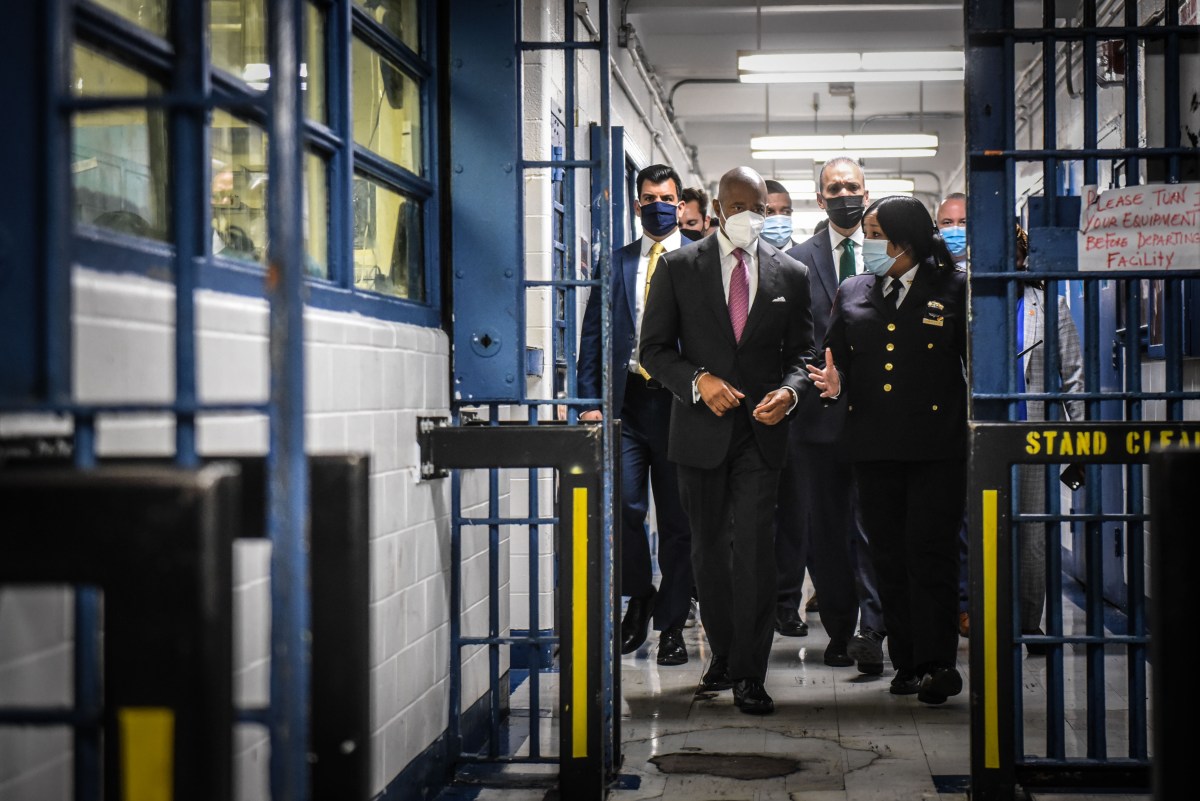
According to the emergency declaration, Local Law 42 posed significant logistical challenges to the city’s correctional system; Mayor Adams noted that the Correction Department is currently facing a staffing shortage that makes it impossible for the law’s provisions to be carried out.
“[A]ttempting to comply with many of the provisions of Local Law 42 and the new BOC regulations, such as transporting individuals to court without restraints, would require a massive increase in staff and other resources, which are not available,” Adams’ order noted.
The mayor also pointed out concerns from the federal monitor overseeing reform of Rikers Island had “expressed deep concerns about the proposed local law and assessed that implementing Local Law 42 ‘could impede the Department’s ability to comply with the Nunez Court Orders,’ and ‘inadvertently undermine the overall goals of protecting individuals from harm, promoting sound correctional practice and improving safety for those in custody and jail staff.'”
Previously, Mayor Adams had suggested Local Law 42 was nothing but an unnecessary hindrance in Correction Department operations, going as far as to suggest the legislation’s aim to ban solitary confinement was a “sleight of hand”; Correction Commissioner Lynelle Maginley-Liddie said that the practice had been out of use for years, and that Local Law 42 aimed to misapply the solitary confinement label to other common practices used to preserve inmate and guard safety.
Supporters of the bill, however, argued that the opposite was true – and that the legislation was necessary to root out any use of practices that segregate prisoners under restraint for any prolonged periods.
Williams said that he is exploring legal options to have the mayor’s order nullified. The emergency declaration lasts up to 30 days, but the mayor can choose to extend it.
Meanwhile, from the City Council’s perspective, Saturday’s executive order was the second time in less than a week that Mayor Adams seemingly pulled the rug out from under them.
On Thursday, the mayor’s Charter Revision Commission approved a slate of ballot questions which, thanks to a quirk in city law, knocked off the November ballot the City Council-approved referendum asking voters to expand its “advice and consent” authority for mayoral appointments.
“Each day, Mayor Adams’ Administration shows how little respect it has for the laws and democracy, it sets more hypocritical double standards for complying with the law that leave New Yorkers worse off,” said Shirley Limongi, a City Council spokesperson. “In this case, our city and everyone in its dysfunctional and dangerous jail system, including staff, are left less safe. The reality is that the law already included broad safety exemptions that make this ‘emergency order’ unnecessary and another example of Mayor Adams overusing executive orders without justification.”
Read More: https://www.amny.com/politics/
